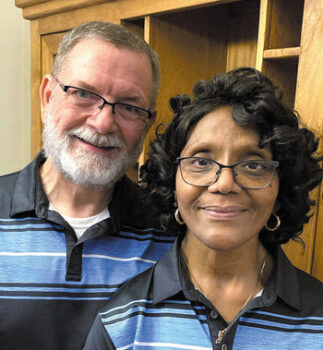
Scott and Dolly Ward
Deb Melton
Scammers target seniors more often than any other group, according to the National Council on Aging. It is estimated that tens of thousands of seniors become a victim of a scam each year, costing them and their families over a billion dollars.
If you find that shocking, just think about the last time you received a suspicious email, phone call, or text. Many are easy to spot. But scammers get smarter every year, and it is easy to fall prey to their tactics. Scammers target seniors for several reasons. First, seniors may have a lot of money saved that they use in their retirement. Second, sometimes they are not as technically savvy as younger adults. Third, they tend to be more trusting and fail to verify before taking action.
Most of us think that we will not fall for their tactics, yet it happens more often than we’d like to admit.
On Saturday, April 15, the Democratic Club has invited Scott Ward to speak on this subject. Scott has more than 30 years’ experience as an I.T. manager, much of that having to do with cyber security. He served as a Cyber Security Subject Matter Expert at the University of the Potomac and was founder and lead mentor of CyberSecurity Sensel, a peer mentorship program. He also served under several Secretaries of Defense as the I.T. program manager.
Scott’s talk will focus on how to spot a scam email or text, what to do when you see one, and what steps to take if you happen to fall victim to one of these scams.
Mark your calendar for Saturday, April 15, and join others in the Mesquite Room at 3 p.m. for this informative and valuable presentation.
